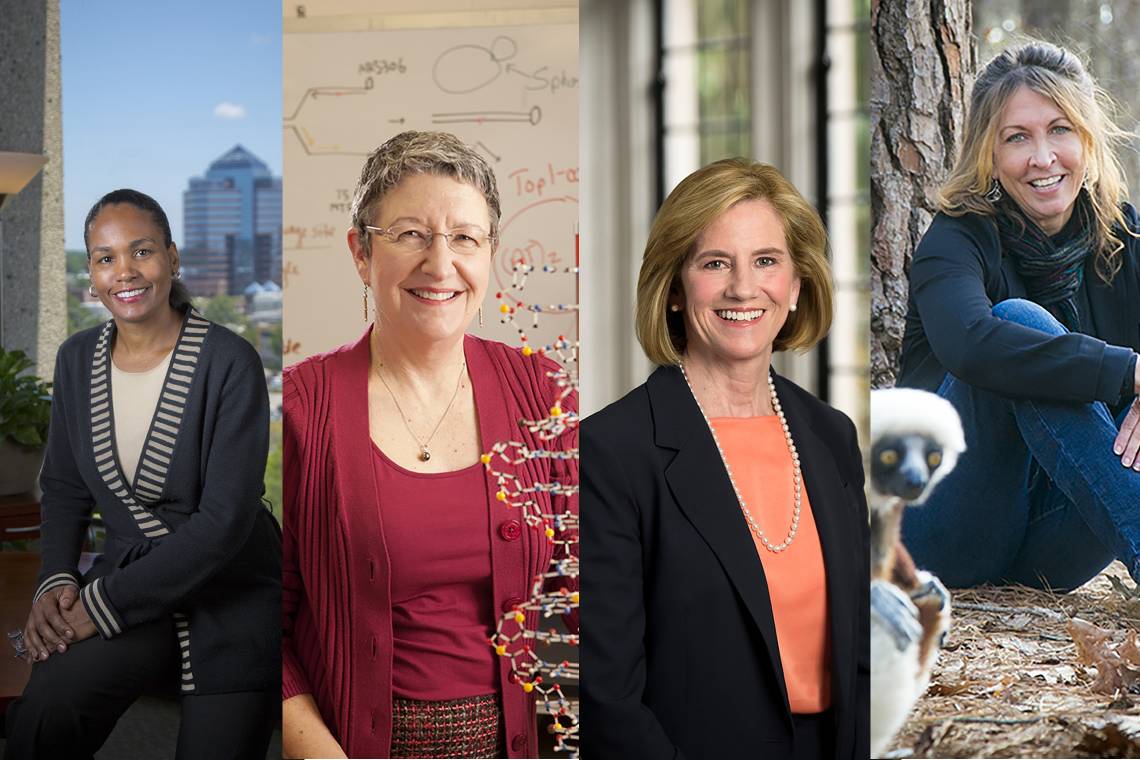
Four senior faculty members, including Medical School Dean Mary Klotman, have been named Fellows of the American Academy of Arts and Sciences (AAAS). The recipients — all women — represent four of 252 total members elected this year. Founded in 1780, the Academy honors exceptional scholars, leaders, artists, and innovators and engages them in sharing knowledge and addressing challenges facing the world.
“We are honoring the excellence of these individuals, celebrating what they have achieved so far, and imagining what they will continue to accomplish,” said David Oxtoby, the President of the Academy. “The past year has been replete with evidence of how things can get worse; this is an opportunity to illuminate the importance of art, ideas, knowledge, and leadership that can make a better world.”
This year’s Duke members are:
L. Ebony Boulware , MD, MPH, Chief of the Division of General Internal Medicine in the Department of Medicine, Vice Dean for Translational Science, Director of the Duke Clinical and Translational Science Institute (CTSI), Eleanor Easley Distinguished Professor in the School of Medicine, Associate Vice Chancellor for Translational Research at Duke University.
Dr. Boulware Is a general internist and clinical and translational scientist who works to improve health and health equity, particularly for individuals and communities affected by chronic health conditions such as kidney disease. As director of CTSI, she helps researchers conduct innovative and impactful research to improve health and health equity for individuals, their families, and their communities.
Sue Jinks-Robertson, PhD, Mary Bernheim Distinguished Professor, Vice-Chair and Professor in the Department of Molecular Genetics and Microbiology in the School of Medicine.
Dr. Jinks-Robertson studies the genetic makeup of yeast. Her team examines yeast DNA, looking for the factors behind mutations or changes in sequence. This research is important because the DNA of yeast is essentially the same that is found in many other organisms, including humans. The research is of great value in the fight against cancer, since cancer can occur when cells with genetic flaws multiply. Therapies that help identify and repair these flaws can be critical in battling the disease.
Mary E. Klotman, MD, Dean of the Duke University School of Medicine, Vice-Chancellor of Health Affairs at Duke University, R.J. Reynolds Distinguished Professor of Medicine
An accomplished clinician and scientist, Dean Klotman’s research interests are focused on the molecular pathogenesis of Human Immunodeficiency Virus 1 (HIV-1) infection. Among many important contributions to this field, Klotman and her team demonstrated that HIV resides in and evolves separately in kidney cells, a critical step in HIV-associated kidney disease. Her research group also has determined the role of soluble host factors involved in an innate immune response to HIV in an effort to improve prevention strategies, topical microbicides that could be used to block sexual transmission of HIV.
Anne Yoder, PhD, Braxton Craven Distinguished Professor of Evolutionary Biology, Director of the Duke Lemur Center 2006-2018
Dr. Yoder’s research is devoted to understanding how the myriad forces of climate, geography, genetics, and ecological interactions have converged to generate the unique and incredibly diverse biota of Madagascar. Her lab has a significant focus on capacity building through education and training of both American and Malagasy students. During her tenure as director of the Duke Lemur Center, Yoder transformed the little-known conservation center weatherized with plastic sheeting and space heaters into a jewel of Duke’s research environment focused on conservation, research and education.